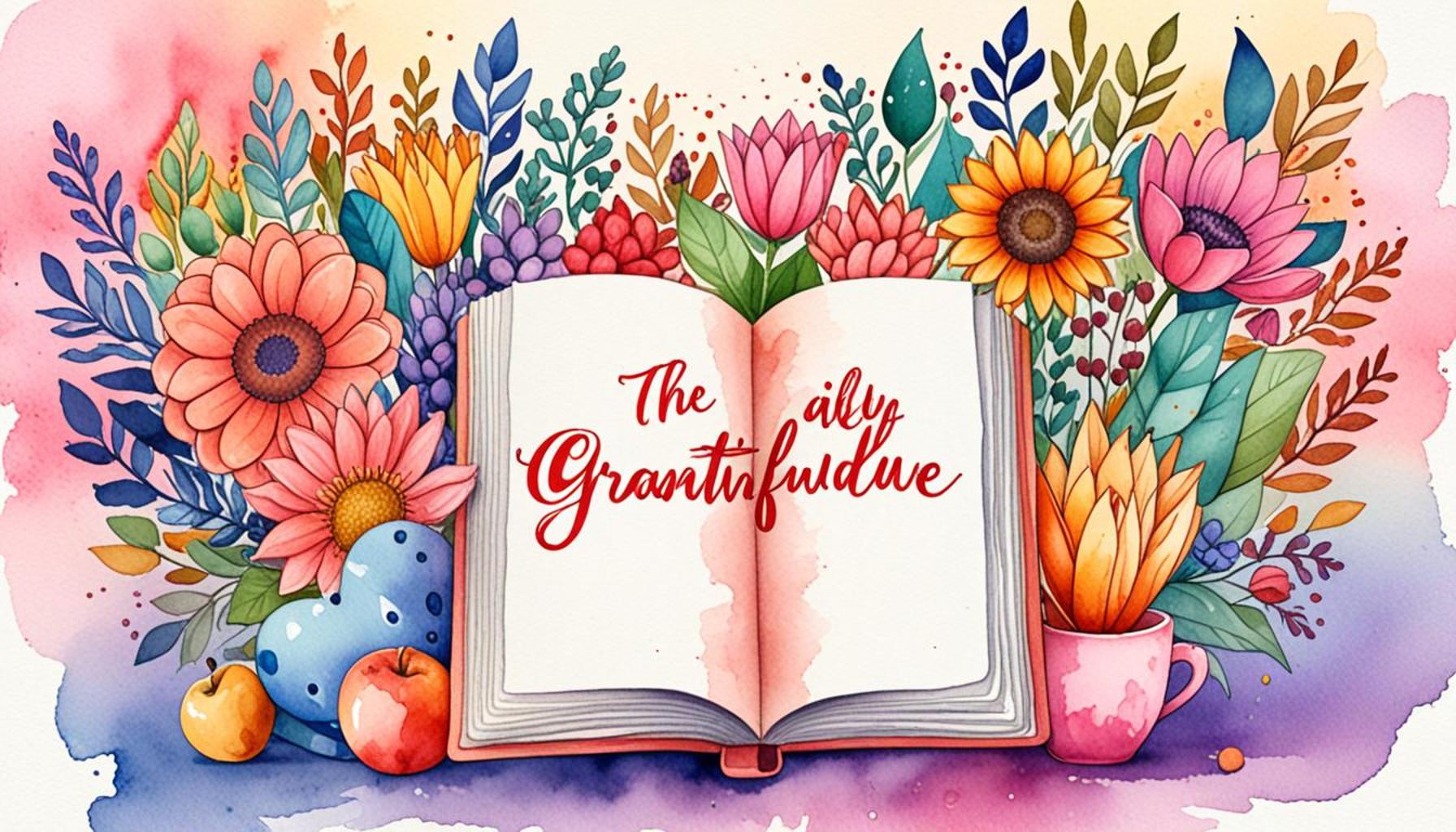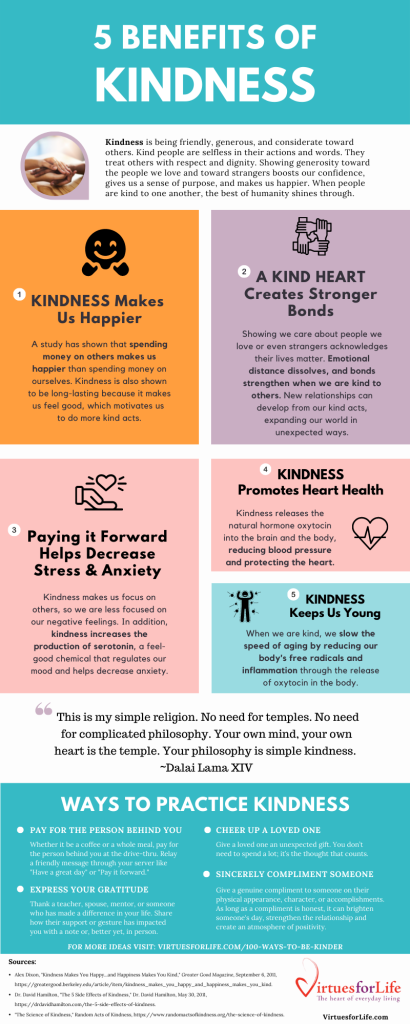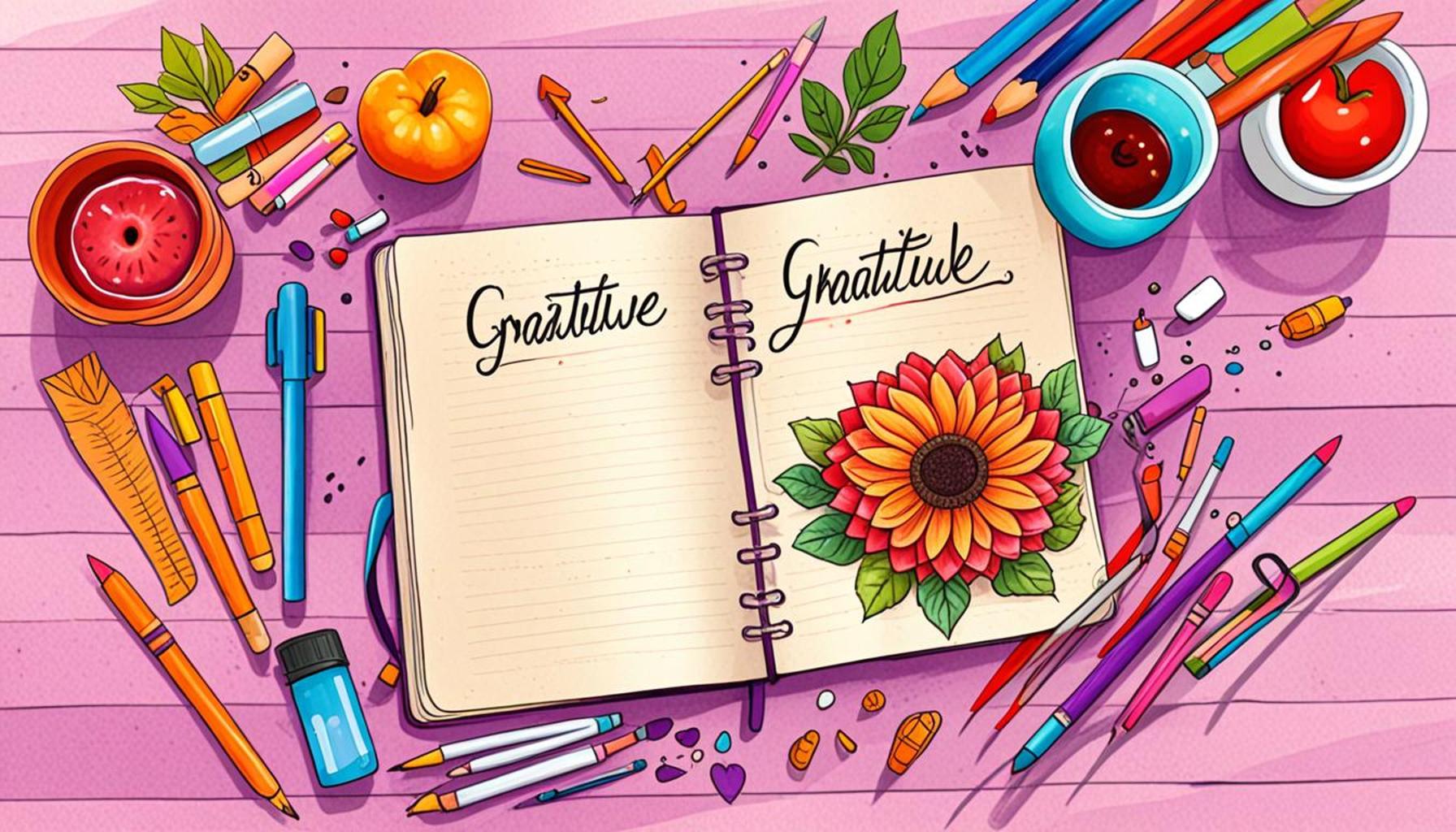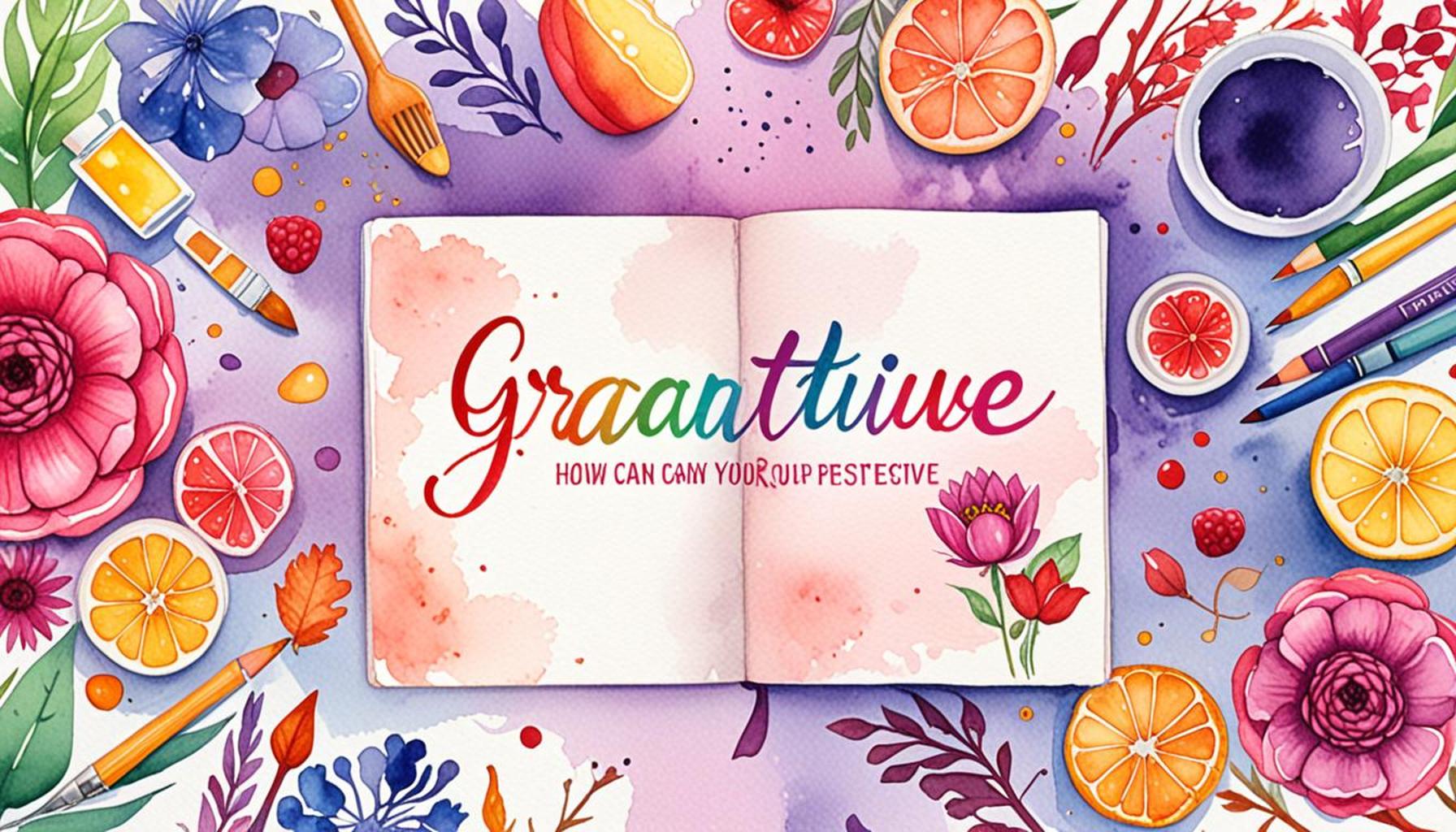The Importance of Daily Gratitude for Mental Health

The Importance of Cultivating Gratitude
In the hustle and bustle of modern life, we often overlook the power of appreciation and gratitude. Yet, integrating daily gratitude into our routines can yield transformative benefits for mental health, significantly enhancing our overall well-being. By merely dedicating a few moments each day to reflect on things we are thankful for, we can dramatically shift our perspectives and emotional states.
Why Gratitude Matters
The essence of gratitude lies in its ability to enhance our emotional landscape. Here are some compelling reasons to embrace gratitude as part of your daily life:
- Reduces Stress: Acknowledging the positives in our lives can provide a buffer against anxiety and stress. When individuals focus on what they appreciate rather than on their worries, they may experience a decrease in heart rate and stress hormone levels, creating a sense of calm.
- Promotes Positivity: By consistently shining a light on the good aspects of life, individuals begin to cultivate a more optimistic mindset. Studies reveal that those who practice gratitude experience fewer negative emotions and are less susceptible to feelings of hopelessness.
- Improves Relationships: Expressing gratitude to friends and family not only fosters deeper connections but also encourages a cycle of appreciation. A simple thank you or acknowledging someone’s efforts can strengthen bonds, making relationships more resilient and fulfilling.
Insights from Research
Research confirms the profound effects of gratitude on mental health. Investigations indicate that individuals who actively practice gratitude report lower levels of depression and higher life satisfaction. Notably, Nigerian mental health experts highlight the significance of nurturing gratitude, particularly in local communities facing socio-economic challenges. They argue that gratitude can enhance emotional resilience, helping individuals cope better with stressors inherent in daily life.
Incorporating gratitude into our lives does not require complex strategies. Simple yet impactful acts, such as maintaining a gratitude journal—where one records things they appreciate daily—or verbally expressing thanks to those around them can lead to substantial improvements in mental health. For instance, amidst Nigeria’s vibrant cultural landscape, sharing what one is grateful for can become a communal practice that strengthens social cohesion.
As we explore the concept of gratitude further, we discover that its positive implications on mental health extend far beyond personal benefits. It promotes a culture of appreciation that can resonate within families and communities, fostering environments where individuals feel valued and connected. Ultimately, by embracing gratitude, we can embark on a journey towards greater emotional well-being and societal harmony.

SEE ALSO: Click here to read another article
Harnessing the Power of Appreciation
In a world where negativity often dominates headlines and social media feeds, the act of practicing gratitude emerges as a potent antidote for mental health challenges. Embracing daily gratitude not only improves individual well-being but also has the potential to create ripple effects throughout communities. In Nigeria, where communal ties hold significant cultural value, the act of expressing gratitude can further amplify this sense of interconnectedness.
The Mechanisms Behind Gratitude’s Benefits
Understanding how gratitude impacts our mental health reveals its crucial role in fostering resilience. Here are several key mechanisms through which gratitude operates:
- Cognitive Reframing: Gratitude encourages individuals to shift their mental focus from negative thoughts to positive ones. This reframing helps individuals recognize silver linings—even in challenging situations, subsequently improving emotional health.
- Mindfulness Enhancement: Engaging in gratitude practices heightens one’s sense of presence. When we consciously take time to acknowledge what we are thankful for, we become more attuned to our surroundings and less entangled in anxious thoughts about the past or future.
- Reduction of Symptoms: Numerous studies have shown a correlation between gratitude and reduced symptoms of conditions such as anxiety and depression. For instance, a study published in the Journal of Happiness Studies found that individuals who keep gratitude journals exhibit greater emotional resilience and lower levels of psychological distress.
In Nigeria, where many face economic uncertainties and social pressures, the act of being grateful can serve as a mental health resilience tool. Communities that prioritize appreciation through social gatherings and cultural events foster stronger emotional support systems, vital for navigating life’s challenges. Such collective practices highlight how sharing gratitude can build communal strength, aiding individuals in managing stress effectively.
Moreover, integrating gratitude into daily routines can be as simple as reflecting on one’s day before sleep or encouraging family members to share what they appreciate during communal meals. This practice not only enriches individual lives but can solidify the bonds within families and communities. By fostering open conversations about gratitude, individuals can support each other’s mental health journeys, creating environments where everyone feels more valued and heard.
Ultimately, the quest for better mental health does not have to be a solitary endeavor. By embracing a culture of gratitude, we can empower ourselves and those around us. This shift not only enhances personal wellbeing but also cultivates a sense of belonging, thus creating a supportive network that can uplift entire communities.
| Advantage | Description |
|---|---|
| Enhanced Emotional Resilience | Regular practice of gratitude can lead to improved emotional strength, allowing individuals to better cope with stress and anxiety. |
| Increased Happiness | Gratitude promotes a positive mindset, which significantly contributes to higher levels of satisfaction and overall happiness. |
Daily gratitude practices, such as maintaining a gratitude journal or engaging in reflective moments at the end of each day, are celebrated for their profound impact on mental health. Research indicates that individuals who actively acknowledge and appreciate the positive aspects of their lives report lower levels of depressive symptoms. Moreover, incorporating gratitude into daily routines not only elevates mood but also fosters a sense of connection with others. Sharing moments of gratitude can create stronger interpersonal bonds, which are crucial for emotional support.Furthermore, incorporating mindfulness with gratitude practices amplifies their effectiveness. Mindfulness encourages individuals to live in the present moment, appreciating life’s small joys that can often go unnoticed. By regularly reflecting on what one is thankful for, the brain adapts to recognizing positive experiences, thereby reshaping cognitive patterns. This transformation can reduce feelings of resentment and envy, ultimately promoting a more fulfilling and mentally healthy life. Exploring the depths of daily gratitude can truly change one’s perspective and improve overall well-being.
LEARN MORE: This related article may interest you
Practical Strategies for Cultivating Gratitude
To reap the benefits of daily gratitude for mental health, implementing practical strategies into our everyday lives is essential. These methods can be easily integrated into daily routines and can significantly enhance one’s overall sense of well-being.
Gratitude Journaling
One of the most effective ways to foster gratitude is through gratitude journaling. This practice involves setting aside a few minutes each day to write down at least three things one is grateful for. Research shows that individuals who maintain a gratitude journal report a marked improvement in their emotional state. Studies conducted in various cultural contexts, including Nigeria, exemplify how maintaining a record of thankful moments can encourage a more positive outlook, especially amid societal pressures.
Verbal Expressions of Gratitude
In Nigerian culture, expressing gratitude verbally can strengthen social bonds. Whether it’s during family gatherings, community events, or one-on-one interactions, the act of stating what one is grateful for cultivates a culture of appreciation. This not only instills positive feelings within oneself but can also inspire others to express their gratitude, creating an uplifting atmosphere. Simple phrases like “Thank you for your support” or “I appreciate you being here” can have profound impacts on both the speaker’s and listener’s mental health.
Mindful Reflection
Engaging in mindful reflection provides another avenue for nurturing gratitude. Taking a moment during the day, perhaps during commute or before meals, to reflect on what one appreciates about life fosters a deeper connection with the present moment. In a bustling Nigerian city like Lagos, where fast-paced lifestyles often lead to chaos, a few minutes of intentional gratitude can serve as a grounding practice, allowing individuals to calm their minds and emphasize positivity in their daily experiences.
Gratitude in Action
Moreover, taking gratitude beyond thoughts and words into actions can improve overall mental health. Acts of kindness, such as volunteering or helping a neighbor, embody the spirit of giving thanks and create a positive feedback loop. Research highlights that helping others not only uplifts those receiving kindness but also significantly boosts the giver’s mental well-being. In Nigeria, volunteer groups often organize projects focused on community welfare, emphasizing how gratitude can manifest into tangible actions, fostering stronger networks of support.
Community Rituals
Embedding gratitude in community rituals can uphold cultural values and enhance collective mental health. Celebrations, festivals, and communal prayers centered around thankfulness encourage societies to come together and reflect on their blessings. These communal acts, especially popular in various Nigerian ethnic groups, reinforce shared connections and mitigate feelings of isolation or despair, proving that a culture steeped in gratitude is beneficial for the collective mental health of its members.
In essence, the importance of daily gratitude for mental health can be observed through these practical strategies. By engaging in gratitude journaling, expressing thanks, reflecting mindfully, acting on kindness, and participating in community rituals, individuals can bolster their mental resilience while positively impacting those around them. Each act of gratitude serves not only as a personal anchor amidst life’s challenges but also strengthens the social fabric, vital for navigating Nigeria’s complex societal dynamics.
YOU MAY ALSO LIKE: Read read another article
Conclusion
In conclusion, the importance of daily gratitude for mental health cannot be overstated. Implementing practices such as gratitude journaling, verbal acknowledgments, and mindful reflection leads to significant improvements in emotional well-being. These simple yet profound actions create a ripple effect, enhancing not only individual mental health but also enriching social relationships within the community. In a culturally diverse nation like Nigeria, where communal ties are pivotal, fostering gratitude can serve as a bridge to stronger connections and collective resilience.
Moreover, the embodiment of gratitude through acts of kindness and community rituals strengthens the societal fabric. Engaging in volunteer work or participating in traditional celebrations of thanks reinforces a sense of belonging and purpose. As research indicates, these practices can mitigate feelings of isolation, particularly in urban environments where individuals may experience overwhelming stressors.
The journey towards better mental health starts with a mindset of appreciation. As we incorporate gratitude into our daily lives, we not only elevate our own mental health but also contribute positively to the world around us. Therefore, let us take a moment each day to recognize our blessings and acknowledge the contributions of others. In doing so, we can transform our perspectives, cultivate resilience, and promote a culture of gratitude that thrives across generations. Embrace the power of gratitude—a simple yet impactful tool that can define the quality of our lives in meaningful ways.


